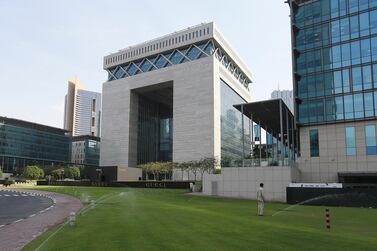Sheikh Maktoum bin Mohammed, deputy ruler of Dubai and president of the Dubai International Financial Centre, has issued a Presidential Directive setting out temporary emergency measures for employers and employees in the free zone affected by the coronavirus pandemic.
The emergency period began following the signing of the directive on April 21 and runs until July 31.
The “DIFC Covid-19 Directive” allows employers in the DIFC to implement emergency employment measures without employee consent and with five days’ written notice, including: imposing reduced working hours; imposing paid or unpaid annual leave; reducing pay on a temporary basis; restricting workplace access; and imposing remote working conditions, including measuring employee engagement and productivity.
“It is a significant piece of interim legislation in that it affords DIFC employers a suite of emergency measures that it can deploy to alleviate short-term cash flow concerns. Importantly, these measures can be implemented without employee consent,” said Gordon Barr, an employment and incentives partner at law firm Al Tamimi.
For employees, the directive provides protection for gratuity payments, sick leave and visa cancellation.
The new legislation stipulates that when an employee’s basic salary has been reduced after March 1, the end-of-service gratuity will be calculated using the basic salary as of February 29. Any sick leave taken due to contracting Covid-19 or being placed in quarantine will not be counted towards sick leave entitlement.
Finally, for employees terminated between March 1 and July 31, employers can defer the visa cancellation process as long as they continue to provide basic medical insurance cover. If the employee is in the retail, service or hospitality sectors and accommodation is provided, the condition is that the employer continues to provide accommodation during that time.
The directive also requires the more than 2,400 employers in the DIFC to maintain a list of employees who have been terminated or put on unpaid leave. The Government Services Office will place these people, after their written consent, on an Available Employee Database, which can be searched by DIFC employers looking to make new hires.
The actions taken by the DIFC come as weeks of precautionary measures to contain the spread of the coronavirus have taken a toll on businesses and resulted in pay cuts or job losses for individuals. There are signs that restrictions may be eased, with Dubai Economy issuing reopening guidelines and protocols on Wednesday, but no dates have been specified.
Worldwide, there are more than 2.6 million confirmed cases of Covid-19 and over 180,000 deaths, according to the Johns Hopkins University tracker as of Thursday. More than 720,000 have recovered.
In the UAE, there are 8,756 cases with 56 deaths and 1,637 recoveries.
The DIFC directive follows a similar resolution issued by the Ministry of Human Resources and Emiratisation last month. The resolution allowed private sector companies registered with the ministry to take measures in the following order: implementing remote working, granting paid leave, granting unpaid leave, reducing salaries temporarily and reducing salaries permanently.
However, the measures taken must be agreed upon by employers and non-Emirati employees and, in the case of permanent salary reduction, the employer must obtain the ministry’s approval.
In contrast, DIFC employers will not have to obtain consent from employees and can take one or more of the measures available to them “in any particular order that they want”, said Shiraz Sethi, regional managing partner and co-head of employment at law firm DWF Middle East.
“These are emergency measures and temporary measures just to get through the Covid-19 period,” Mr Sethi said. The DIFC president has the power to reduce the emergency period or extend it, he added.
Rebecca Ford, employment partner at law firm Clyde & Company in Dubai, said “one would expect an employer to consider less invasive measures first, such as requiring an employee to use their holiday allowance, before moving to measures which have a greater monetary impact”.
The directive also addresses workforce restrictions, as well as privacy and cybersecurity. Any employer who does not adhere to restrictions, such as limits on the number of staff working in the office, is subject to a fine of up to $50,000 (Dh183,653). Employees who fail to follow workforce restrictions are at risk of immediate dismissal.
Employers are allowed to collect, process and share employees' personal data “for any reasonable purpose related to the health and safety of their employees, or required by a competent authority”, provided that they do not process more information than “reasonably necessary”, according to the directive.








